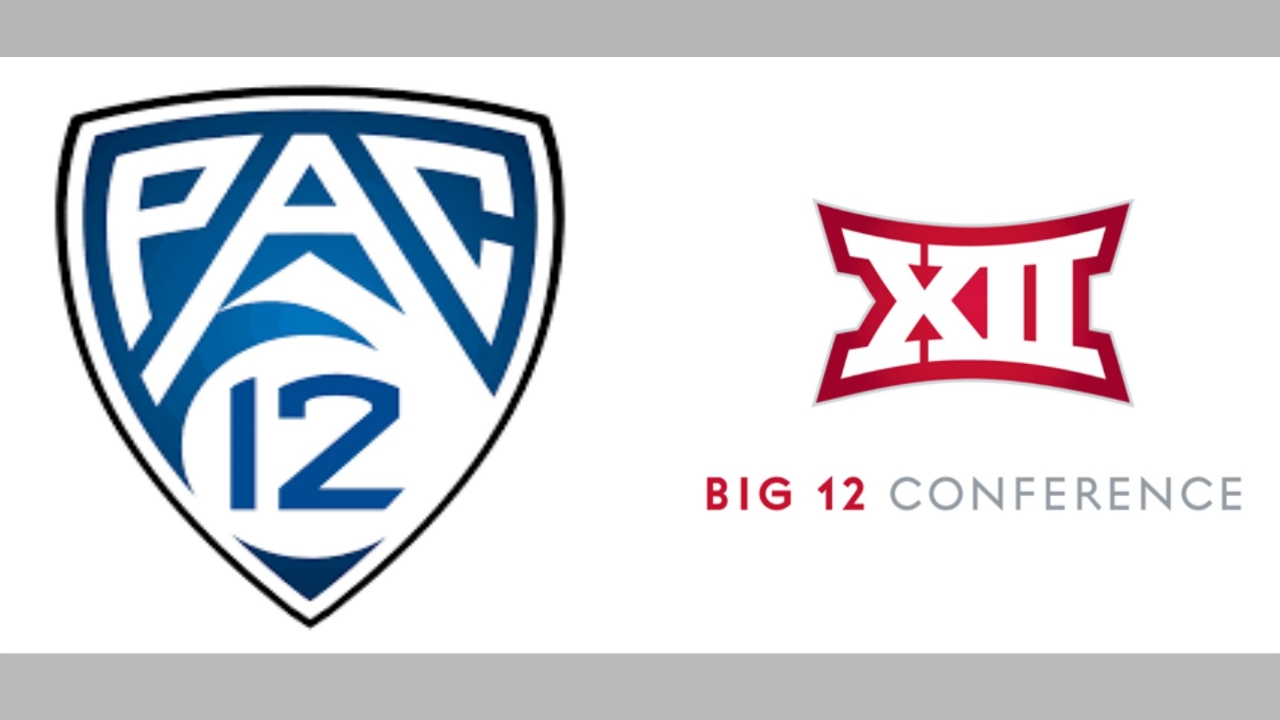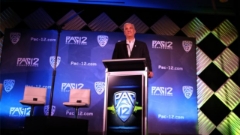
Future of Both Big 12 and Pac-12 Could Be in the Hands of ESPN and FOX
STILLWATER – This is the calm before the storm for the Big 12 and Pac-12 Conferences. What a summer for the Pac-12 Conference and their commissioner George Kliavkoff. USC and UCLA fly the Pacific coast for a new conference address in the Big Ten and that rich $7 billion television contract. Kliavkoff knows how Bob Bowlsby felt last summer when Texas and Oklahoma announced they would be moving to the SEC whenever it was financially feasible or at the end of the current television rights contract in the Big 12. Then Big 12 commissioner Bob Bowlsby blamed ESPN and now Kliavkoff has FOX Sports in his crosshairs as being partically responsible for the Trojans and Bruins departure. Now, get this, ESPN and FOX Sports will more than likely have a strong say in the future of those two conferences.

Besides losing USC and UCLA to the Big Ten, Kliavkoff is watching along with the rest of the Pac-12 as the Cal University System Regents debate whether UCLA can leave fellow system school Cal-Berkeley and go to the Big Ten. The regents chairman seems to think they can’t. The regents could keep UCLA in the Pac-12 or maybe take some of the Bruins Big Ten television bounty and force them to share it with California.
Jason Scheer of Wildcat Authority, a 247 Sports site that covers the University of Arizona, reported that in the exclusive negotiation period that the Pac-12 had with Disney/ABC/ESPN resulted in an offer for exclusive rights to the Pac-12 for roughly $250 million per year coming out to an estimated $24.5 million per school per year. With the SEC and Big Ten getting somewhere betweeen $80-100 million per school per year that number for the Pac-12 would be miserable. It would take them completely out of competing. Scheer has hinted that Arizona is a school that has cast their eyes on the Big 12.
Meanwhile, a source told me that the Pac-12 Board of Directors (presidents and chancellors) heard from an independent consultant that had their multi-media rights estimated at only $300 million per year and that 40 percent of the league’s television value left with USC.

New Big 12 commissioner Brett Yormark has friends and contacts at FOX Sports and obviously knows some folks at Disney as well. The word is he is not waiting and allowing Kliavkoff and the Pac-12 that negotiating advantage of going first and that the Big 12 has had early discussions with the networks.
What is the value of the two conferences. The Big 12 Conference has had more good teams and more good games as of late. It was Kliavkoff that last summer tried to poach Oklahoma State and Kansas State inititally to join the Pac-12. He picked those two schools because of their commitment, success, and love affair with football. He felt those two schools could come in and ramp up the intensity and even teach some of the Pac-12 schools how to do football in a big way. Ironically, USC President Carol Folt kicked Kliavkoff and his idea of bringing those two schools in to the curb.
Oregon, Washington, Stanford, Utah, and possibly the Arizona schools bring some value to the table. ESPN has always loved that “Pac-12 After Dark” window so that is there. The negotiations could favor the Pac-12 on time slot or the Big 12 on football quality. Let’s say that ESPN and their offer in the negotiating window doesn’t change significantly. The Pac-12 and FOX don’t seem to have a mutual interest. FOX has USC and UCLA in their Big Ten package.
FOX still needs inventory for slots other than the Big Noon kickoff and for FS1 and FS2. ESPN has the SEC and ACC, but could use inventory for ABC, ESPN, ESPN2, ESPNU, ESPN News, and ESPN+. Anybody wonering what is going to happen to the Longhorn Network? Texas won’t be taking it with them.
ESPN could take the Pac-12 with others or exclusive as they wish. FOX Sports could take Big 12 or negotiations could lead to one conference eating up the best of the other and ESPN and FOX share the rights of the surviving conference of the Power Four.
Somewhere there is a legal definition for that, if the two networks got together, and it’s called collusion.

